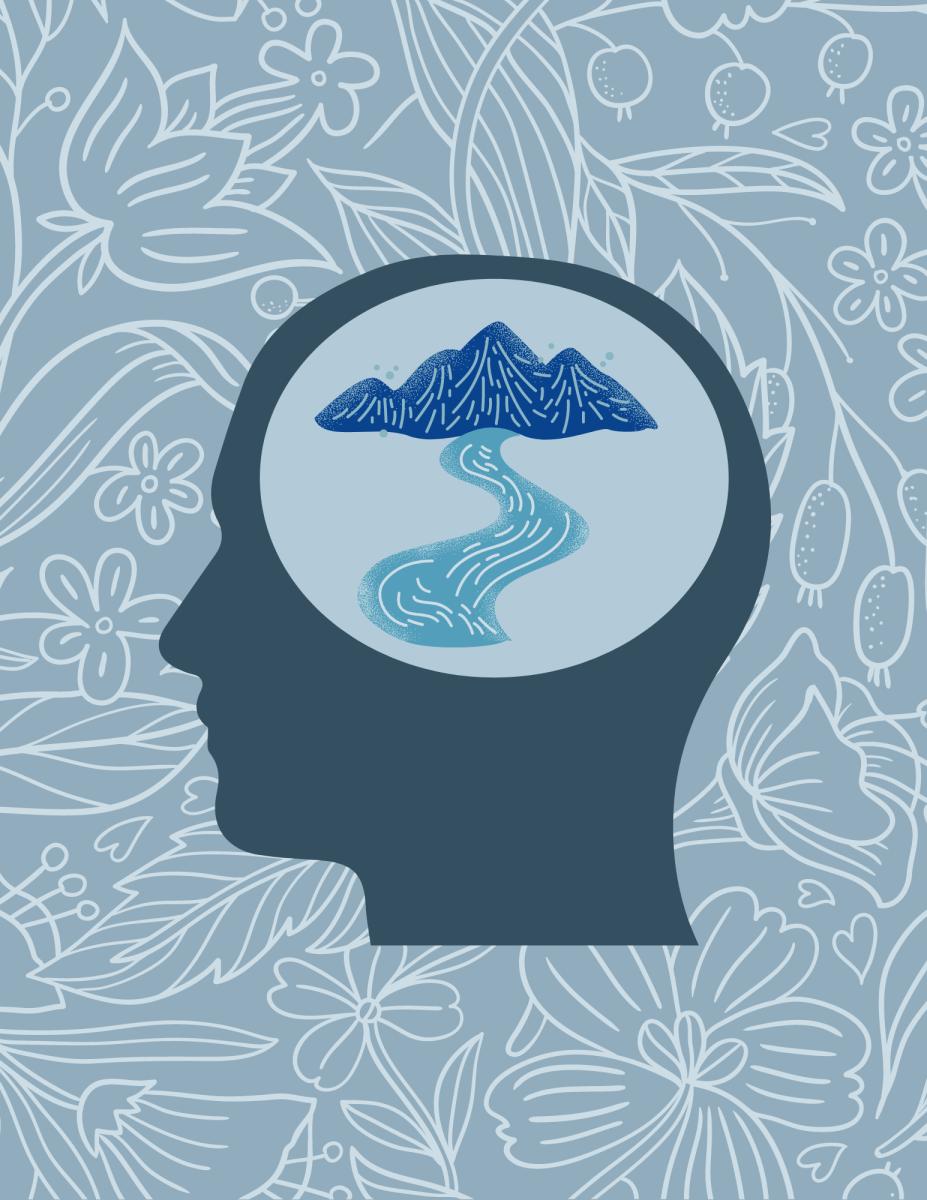How the Sports and School Balance Affects Mental Health
A graphic depicting how mental health is important to keeping a serene, calm mind. (Credit: Jennifer Lee)
February 10, 2023
High school can be a rough time for some students. Most people use high school as a time to find themselves and understand who they really are. One way that many students express themselves is through sports participation.
Many kids grew up playing a sport and, in most cases, fell in love with it. Sports can pose as an escape from reality for some people and for others it can simply be something they participate in for the physical fitness and sociability components. For students who participate in a sport at school or even more intensely a club plus school sport, time is at a premium with daily practices and one to two games a week. How do student athletes manage to balance their part-time jobs, school, social life, and sport’s participation all at once?
Some students like to fill their time with sports and extracurricular activities, like Roswell High students senior Maren Cline and sophomore Elizabeth Stamey. Both girls play four sports each and Stamey participates in triathlons outside of RHS. While Stamey doesn’t do any extracurriculars, Cline is the National Charity League, National Honors Society, and several other clubs; she also participates in community service on the weekends.
Not everyone has the same purpose for filling their time with sports and activities; they differ between every person. When asked if she ever got overwhelmed by the number of activities, Cline says “No I don’t. I enjoy staying busy.” On the other end, Stamey says “it does get overwhelming, but it helps to break things down into a bunch of little tasks and just get them done one by one.”
While balancing school and sports/activities is hard, it’s just the first obstacle. Students still need to find time to get the right amount of sleep and stay social. Cline says, “the hardest things about balancing everything is probably finding time to have fun with my friends.” Sports and school can take away from someone’s free time, but a lack of social interaction can be seriously harmful. Stamey says, “the hardest thing is trying to enough sleep while trying to balance sports and school.” The less sleep someone gets, the more their health is affected. This can lead to them performing worse inside and outside of school.
Mr. Drew Glover, counselor and coach at Roswell for 24 years, has coached basketball, tennis, lacrosse, softball, and soccer and says, “the best thing you can do is plan ahead. You usually know when practices and games are. You need to work around these times to get schoolwork done.”
Glover does, “think students can have a hard time managing the school/sports balance,” but “participating in sports helps students do better in school… Whatever you do, don’t give up the sport to take a more rigorous schedule especially if you love the sport.”
According to a study, “50 Current Student Stress Statistics: 2023 Data, Analysis & Predictions,” many high school students struggle with the stress of homework: “Three quarters (75%) of American high schoolers and half of middle schoolers described themselves as ‘often or always feeling stressed’ by schoolwork.” Glover talks about how one should “think about the courseload you are selecting, especially if you play multiple sports. Do you really need the AP class?”
Finding the balance between sports and school life has its advantages too. According to Glover, it teaches students about “determination and perseverance [and] working with others. These are all things that help in the classroom as well.” Sports can teach someone better team skills that they can carry with them throughout their whole life.
Finding a balance between challenging academic classes, hours and hours of sports practice and games, after-school jobs, extracurricular activities and family/friend time requires more hours in the day, and for most this is not possible. A targeted strategic approach would be where students get help from their peers, parents, or therapists who are successful at balancing life on how to manage the stressful life balance for teens.


